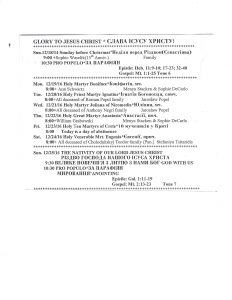 Colossians 3:12-16; Luke 18:18-27 (Readings of the 30th Sunday after Pentecost)
Colossians 3:12-16; Luke 18:18-27 (Readings of the 30th Sunday after Pentecost)
We have just celebrated the great feast of our Lord’s baptism. By being baptized ourselves, we have become Christians, “God’s chosen ones,” as St. Paul reminds us in this Sunday’s Epistle, “Put on then, as God’s chosen ones, holy and beloved, heartfelt compassion, kindness, humility, gentleness, and patience, bearing with one another and forgiving one another, if one has a grievance against another; as the Lord has forgiven you, so must you also do. And over all these put on love, that is, the bond of perfection (Colossians 3:12-14)” To be a Christian means to choose life, not necessarily the life we want, but the life God has opened for us. The rich young man could not accept this choice. He refused to give his riches to the poor, he selfishly kept his riches for himself. He refused to be among God’s chosen ones, to feed the hungry, to give drink to the thirsty, the give shelter to the homeless, cloth the naked, to visit those who are sick or in prison.
St. Anthony the Great heard this gospel, and transformed Christian life, creating an army of those who chose Christian perfection; St. Francis of Assisi heard this gospel, and transformed the Church, re-orienting it on the path of love for the poor, in its constant need for reformation. Today this same choice lies before us, and while we may not transform the world, we can find salvation and we can spread “compassion, kindness, humility, gentleness and patience” among those in our lives.
Meditation by Archpriest David Petras
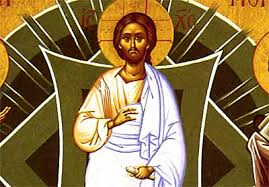 When we began the Feasts of Light on the second Sunday before Christmas, the first words of Scripture were: “When Christ our life appears, then you will also appear with him in glory. (Colossians 3:4). Today, the last words from Scripture for this feast are: “The people who sat in darkness have seen a great light, and upon those who sat in the region and shadow of death Light has dawned. (Matthew 12:16)” St. Paul in his epistle writes about Jesus descending and ascending: “He who descended is also the One who ascended far above all the heavens, that he might fill all things (Ephesians 4:10)”
When we began the Feasts of Light on the second Sunday before Christmas, the first words of Scripture were: “When Christ our life appears, then you will also appear with him in glory. (Colossians 3:4). Today, the last words from Scripture for this feast are: “The people who sat in darkness have seen a great light, and upon those who sat in the region and shadow of death Light has dawned. (Matthew 12:16)” St. Paul in his epistle writes about Jesus descending and ascending: “He who descended is also the One who ascended far above all the heavens, that he might fill all things (Ephesians 4:10)”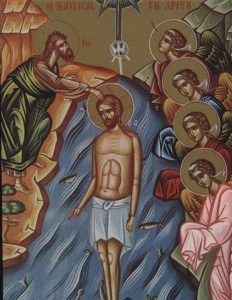 Divine Liturgy for Theophany of Our Lord, Friday, January 6
Divine Liturgy for Theophany of Our Lord, Friday, January 6 Today, the Byzantine Church keeps two feasts: the Circumcision of the Lord, the 8th day since Christmas (new calendar) and Saint Basil (see the blog post below).
Today, the Byzantine Church keeps two feasts: the Circumcision of the Lord, the 8th day since Christmas (new calendar) and Saint Basil (see the blog post below).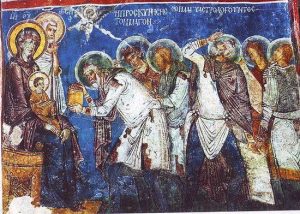 Meditation by Very Rev. Dr. David Petras
Meditation by Very Rev. Dr. David Petras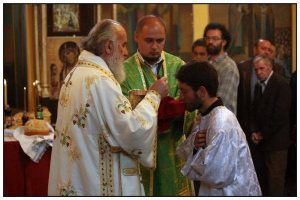 Meditation by Very Rev. Dr. David Petras
Meditation by Very Rev. Dr. David Petras Divine Liturgy on Sunday, December 25th, Christmas Day
Divine Liturgy on Sunday, December 25th, Christmas Day 